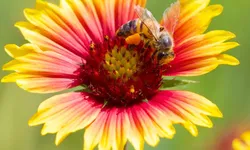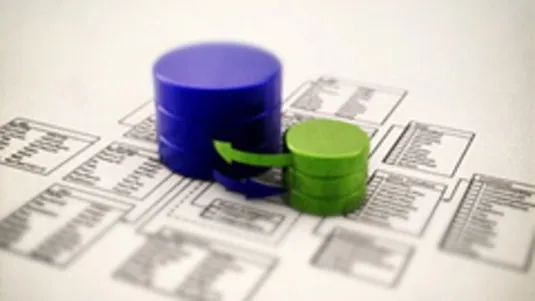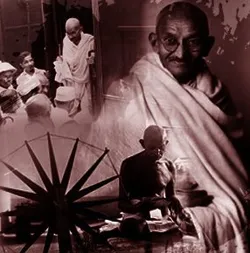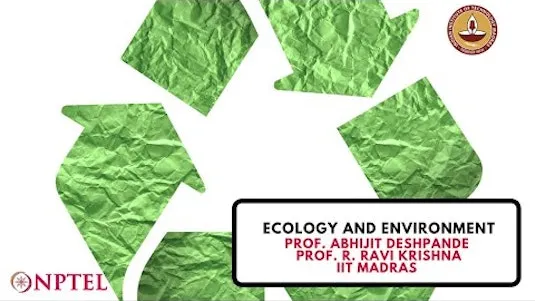
Introduction to Biology: Ecology 
Gain an introduction to Introduction to Biology: Ecology ▼
ADVERTISEMENT
Course Feature
![]() Cost:
Cost:
Free
![]() Provider:
Provider:
Coursera
![]() Certificate:
Certificate:
Paid Certification
![]() Language:
Language:
English
![]() Start Date:
Start Date:
29th May, 2023
Course Overview
❗The content presented here is sourced directly from Coursera platform. For comprehensive course details, including enrollment information, simply click on the 'Go to class' link on our website.
Updated in [March 06th, 2023]
Learners can learn about the connections between living things and the environment in this course. They will gain an understanding of how people are impacting the natural world and how this affects the environment. They will also learn about the scientific process and how observations and experiments are used to gain knowledge about ecology. Additionally, learners will be exposed to stories about how our understanding of ecology has developed over time. Finally, they will gain an appreciation for the complexity of the natural world and the importance of preserving it.
[Applications]
After this course, students can apply their knowledge of ecology to their everyday lives. They can become more aware of the environment around them and the impact of their actions on the environment. They can also use their knowledge to make informed decisions about how to reduce their environmental footprint. Additionally, students can use their knowledge of ecology to become more involved in their local community, such as volunteering for environmental organizations or participating in local clean-up efforts.
[Career Paths]
1. Environmental Scientist: Environmental scientists study the environment and how it is affected by human activities. They use their knowledge of ecology to develop strategies to protect and restore ecosystems. They also work to develop policies and regulations to protect the environment. As the world continues to face environmental challenges, the demand for environmental scientists is expected to grow.
2. Conservation Biologist: Conservation biologists work to protect and restore endangered species and habitats. They use their knowledge of ecology to develop strategies to protect and restore ecosystems. They also work to develop policies and regulations to protect the environment. As the world continues to face environmental challenges, the demand for conservation biologists is expected to grow.
3. Wildlife Biologist: Wildlife biologists study the behavior, ecology, and conservation of wild animals. They use their knowledge of ecology to develop strategies to protect and restore ecosystems. They also work to develop policies and regulations to protect the environment. As the world continues to face environmental challenges, the demand for wildlife biologists is expected to grow.
4. Ecologist: Ecologists study the interactions between living organisms and their environment. They use their knowledge of ecology to develop strategies to protect and restore ecosystems. They also work to develop policies and regulations to protect the environment. As the world continues to face environmental challenges, the demand for ecologists is expected to grow.
[Education Paths]
1. Bachelor of Science in Ecology: This degree program focuses on the study of the interactions between organisms and their environment. Students will learn about the principles of ecology, the structure and function of ecosystems, and the effects of human activities on the environment. They will also gain an understanding of the principles of conservation and management of natural resources. This degree is becoming increasingly popular as the need for environmental stewardship grows.
2. Master of Science in Environmental Science: This degree program focuses on the study of the environment and its components, including air, water, soil, and living organisms. Students will learn about the principles of environmental science, the effects of human activities on the environment, and the principles of conservation and management of natural resources. This degree is becoming increasingly popular as the need for environmental stewardship grows.
3. Doctor of Philosophy in Ecology: This degree program focuses on the study of the interactions between organisms and their environment. Students will learn about the principles of ecology, the structure and function of ecosystems, and the effects of human activities on the environment. They will also gain an understanding of the principles of conservation and management of natural resources. This degree is becoming increasingly popular as the need for environmental stewardship grows.
4. Master of Science in Conservation Biology: This degree program focuses on the study of the conservation of biodiversity and the management of natural resources. Students will learn about the principles of conservation biology, the effects of human activities on the environment, and the principles of conservation and management of natural resources. This degree is becoming increasingly popular as the need for environmental stewardship grows.
Pros & Cons

Lucid and well structured lectures

Easy to learn but substantive material

Interaction with knowledgeable guests

Video lesson with elephants

Invites reflection and practical tasks

Content seemed simplified

Instructor talks more scripted than natural

Could go more in depth with topics
Course Provider

Provider Coursera's Stats at AZClass
Discussion and Reviews
0.0 (Based on 0 reviews)
Explore Similar Online Courses

Data Management for Clinical Research

PowerShell Playbook: Automating Active Directory

Python for Informatics: Exploring Information

Social Network Analysis

Introduction to Systematic Review and Meta-Analysis

The Analytics Edge

DCO042 - Python For Informatics

Causal Diagrams: Draw Your Assumptions Before Your Conclusions

Whole genome sequencing of bacterial genomes - tools and applications

South Asian Religions & Ecology

MGPE-014: Gandhi: Ecology and Sustainable Development

Ecology And Environment
 Related Categories
Related Categories
 Popular Providers
Popular Providers
Quiz
 Submitted Sucessfully
Submitted Sucessfully
1. What is the main focus of this course?
2. What is the scientific process used in this course?
3. What is the impact of people on the natural world?
4. The scientific process used in this course is _________.
Correct Answer: Observations and Experiments


Start your review of Introduction to Biology: Ecology